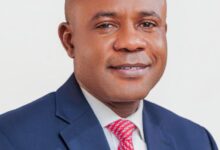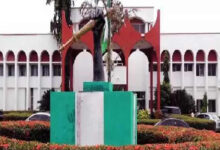
The Nigeria National Petroleum Company Limited (NNPCL) has had nearly N4 trillion in tax liabilities retrieved by the Federal Inland Revenue Service (FIRS).
In addition, it has collected N8.5 trillion in new taxes so far this year, bringing the total to N12.5 trillion.
Mr. Muhammad Nami, the immediate past executive chairman of the Federal Inland Revenue Service (FIRS), updated his successor, Dr. Zacch Adedeji, on tax collection and administration yesterday in Abuja.
Nami stated that FIRS assessed, reconciled, and recovered over N4 trillion in delinquent tax liabilities and seized funds from NNPCL on the government’s behalf.
Between January and September 14, 2023, FIRS reportedly generated over N12.5 trillion for the Federal Government, including N4 trillion recovered from NNPCL and another N8.5 trillion in tax revenue.
He explained that the N12.5 trillion figure did not include quantities invested by taxpayers under the Road Infrastructure Tax Credit Scheme or the tax implications of government tax waivers from January 2023 to the present.
Adedeji stated that, under his leadership, FIRS will develop a tax system that is both innovative and reliable.
He stated that the emphasis would be on incorporating high-quality data into the tax system’s operations in order to increase its efficiency and effectiveness.
Adedeji stated that the tax system will monitor its progress, establish benchmarks, make informed decisions, and ultimately improve its performance by utilizing data.
The use of data, according to him, will yield accurate insights that will improve the output of the tax system.
Adedeji stressed: “We will construct a tax system that is smart and modern, one with unquestionable integrity and will earn the trust as well as admiration of stakeholders.
“Under my leadership, we will not impose things on our stakeholders. I will always be willing to collaborate with them and build a tax administration that we can all be proud of and that enjoys the trust and confidence of everyone.
“It is our responsibility to explain to taxpayers why they should fulfill their tax obligations before the enforcement team knocks on their doors.” On our end, we must simplify the tax system to make it easier for individuals to pay.
“In all of our operations, data integrity will play a central role. We will increase our use of data to measure progress, establish benchmarks, make informed decisions, and improve performance.
“Data and the evidence derived from its use will provide us with accurate insights that will improve our output.” Also, accurate data will facilitate accountability.”














